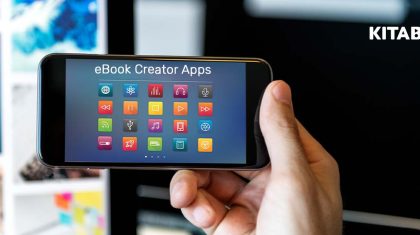
eLearning Platform Innovations: Shape Your Educational Journey
The last few years have seen the eLearning platform space going through a phenomenal transformation, driven by rapid advancements in technology and constantly changing learner preferences.
Making an evolutionary shift from basic online courses to the integration of various multimedia elements, interactive simulations, micro-learning, gamification, and more, eLearning has become much more engaging and immersive.
In this post, we will explore some of the top trends and innovations in the eLearning platform industry that can help both individual learners and educational institutions shape and refine their journey.
Table of Contents
I. The Impact of Technological Innovations on eLearning platforms
II. Top Trends and Innovations in the eLearning Industry
- Learning Experience Platforms
- Gamification
- Mobile Learning
- Artificial Intelligence
- Immersive Technologies
- Podcasts
III. To Conclude
The Impact of Technological Innovations on eLearning Platforms
The advent of several new and innovative technologies in the eLearning industry has had a transformational impact on learners. Apart from making learning much more adaptive, personalized, and learner-centric, it also allows learners to access educational materials anytime, anywhere, at their own pace.
Likewise, there are various adaptive learning platforms powered by artificial intelligence that are revolutionizing the way learners acquire knowledge.
These eLearning platforms make use of new-age technologies such as data analytics and machine learning algorithms to understand the strengths and weaknesses of learners to offer them personalized learning paths accordingly.
Top Trends and Innovations in the eLearning Industry
1. Learning Experience Platforms (LXP)
A Learning Experience Platform (LXP) is an AI-enabled eLearning platform that primarily focuses on enhancing the overall user experience through adaptive learning. Put simply, it is a consumer-grade learning software specially designed to create more personalized learning experiences and help learners discover new learning opportunities.
LXPs combine learning contents from multiple sources, recommending and delivering them using artificial intelligence across digital touchpoints, e.g., desktop applications, mobile learning apps, and others.
2. Gamification
Gamification or game-based learning has emerged as one of the most powerful strategies in the eLearning industry. This methodology is changing the way learners engage with educational content.
It involves incorporating various game elements such as rewards, points, badges, levels, and leaderboards into the learning process. This enhances overall participation as well as learner motivation and knowledge retention.
Implementing gamification in eLearning:
- Enhances engagement among participants
- Gives learners a sense of accomplishment (once challenges are overcome)
- Displays progress toward a goal
- Creates challenges that need to be met in order to move onto the next level of the module
3. Mobile Learning
Mobile learning is yet another popular trend in the eLearning industry that is transforming the way students access educational content. The rapid rise in the usage of smartphones and tablets has given learners the flexibility to engage in learning anytime and anywhere.
Apart from offering convenience, mobile learning also enables learners to access courses, modules, and other resources on the go. This approach allows students to either download the study material onto the device or simply access it online.
Mobile learning today holds a lot of potential for the future. Reason being, most upcoming technologies will more or less depend on their integration with smartphones or mobile devices in some way or another.
4. Artificial Intelligence
Artificial Intelligence (AI) is another trend that is playing a transformative role in the eLearning industry. By leveraging AI technologies, various publishing platforms such as KITABOO can analyze vast amounts of data and offer personalized learning experiences to students.
Further, AI algorithms are equipped to easily adapt content delivery based on the learning styles and preferences of individual learners, thus offering them customized recommendations and assessments.
Even though AI is somewhat tricky to use in the eLearning industry, getting a hold of this technology and making the most out of AI algorithms can help educational institutions, as well as companies, save a great deal of time.
5. Microlearning
Microlearning is an interesting trend that is reshaping the eLearning landscape by offering bite-sized, focused nuggets of information or knowledge that align with our modern short attention spans.
This method makes it easier for students to absorb and remember information by breaking up content into bite-sized modules, which are typically only a few minutes long. It enables you to divide the subjects into concise, one-unit study segments that the student can watch again as needed.
Overall, microlearning is an excellent approach that gives learners access to short bursts of information that are engaging and digestible, unlike one large chunk of information that is generally difficult to remember.
6. Immersive Technologies
Various immersive technologies, such as virtual reality (VR) and augmented reality (AR), are revolutionizing the eLearning industry by creating immersive and interactive learning experiences.
The best part is that you can tailor these immersive learning experiences to the specific needs, preferences, and skill levels of the learners, thus fostering a sense of ownership and relevance.
Further, you can also facilitate collaborative learning experiences by incorporating simulations, virtual classrooms, or social learning platforms.
KITABOO is one such digital textbook platform that embraces these emerging technologies to offer organizations the required tools they need to develop educational VR and AR content.
7. Podcasts
Podcasts allow anyone with a smartphone to access them, listen to them and learn from them, regardless of where one is located.
Educational podcasts are rapidly gaining popularity on eLearning platforms because:
- They are quite simple and cheap to create
- They are easily accessible smartphones, laptops, or tablets
- They reach a wide, global audience
To Conclude
The future of eLearning in the educational landscape is largely driven by the latest trends and technological innovations, which help enhance learner engagement and a commitment to personalized and more accessible learning experiences.
KITABOO stands at the forefront of these innovations and trends, offering cutting-edge solutions that empower educational publishers as well as corporate organizations to deliver high-quality eLearning content and drive positive learning outcomes.
As the eLearning platform landscape continues to evolve further, KITABOO remains a trusted partner for institutions and organizations looking to stay ahead in the ever-evolving world of eLearning and online education.
To know more, write to us at contact@kitaboo.com .
Also check:
Discover how a mobile-first training platform can help your organization.
KITABOO is a cloud-based platform to create, deliver & track mobile-first interactive training content.



